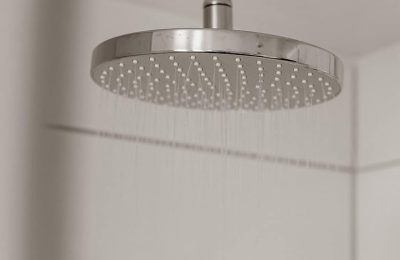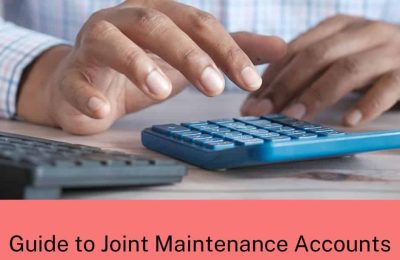On 29 March 2022 the Coronavirus (Scotland) Acts (Early Expiry of Provisions) Regulations 2022 became law and the following day, the Coronavirus (Scotland) Acts (Amendment of Expiry dates) Regulations came into force. The combination of these 2 pieces of legislation was to end some of the emergency Coronavirus provisions, but to continue others until at least 30 September 2022.
As such, the notice periods relative to the grounds for possession for private sector tenancies reverted to their pre-COVID lengths, but the removal of mandatory grounds for possession was continued until 30 September 2022, as were the pre-action requirements (PARs) introduced by the Coronavirus (Scotland) (No. 2) Act 2020 and the Rent Arrears Pre-Action Requirements (Coronavirus) (Scotland) Regulations 2020.
The notice periods for the most commonly used grounds for possession are listed below (not all the grounds are listed and neither have those for regulated tenancies):
- Private residential tenancies
Ground 1 (landlord wants to sell) – 28/84days
Ground 4 (landlord wants to live in property) – 28/84days
Ground 5 (family member wants to live in property) – 28/84days
Ground 10 (no longer occupying the property) – 28days
Ground 11 (breach of tenancy term) – 28days
Ground 12 (rent arrears) – 28days
Ground 13 (criminal behaviour) – 28days
Ground 14 (anti-social behaviour) – 28days
- Assured/short-assured tenancies
Ground 1 (landlord to live in property) – 2mths
Grounds 8, 11 & 12 (rent arrears) – 14days
Ground 13 (breach of tenancy) – 14days
Ground 14 (anti-social behaviour) – 14days
Section 33 (SAT only) – 2mths
There are a couple of things that should be noted:
- Notices served prior to 30 March 2022 will require to stick to the extended notice periods.
- Where notices have been served prior to 30 March 2022, but have not expired yet, landlords cannot withdraw the existing notices and re-serve them to take advantage of the shorter notice periods. In that situation, where any new notices rely upon the same ground or grounds as those served prior to 30 March 2022, the new notices cannot expire before the date the earlier notices are set to expire.
- With the ending of paragraph 10 of schedule 1 of the Coronavirus (Scotland) Act 2020, there is a return to the stricter rules regarding the calculation of dates for notices and the calculation of notice periods meaning great care will be needed again when completing notices.
What happens after 30 September 2022?
Whilst the return to normal for notice periods may be welcome news for some, what should not be forgotten is that there has been no reinstatement of the mandatory grounds of possession and the requirement to comply with the PARs for rent based recoveries has been continued. However, as things stand, these are set to expire on 30 September 2022. The question that arises next is: what happens after that?
The Coronavirus (Recovery and Reform) (Scotland) Bill 2022 (the Bill) is currently going through the Scottish Parliament. The Bill, in its current form (and there is no reason to think that it will not get through relatively unchanged in relation to the core provisions), would lead to two main changes for the PRS. These are:
- The permanent removal of all mandatory grounds for possession for private residential tenancies, assured tenancies (including short-assured tenancies) and regulated tenancies; and
- The permanent incorporation of pre-action protocols into the underlying housing legislation as a factor when considering the reasonableness or otherwise of granting an order for eviction or possession based on rent arrears.
The Bill does this by proposing that the underlying legislation be amended to remove any reference to mandatory grounds from the previous legislation, including the deletion of ground 8 (that the tenant is in 3 months arrears) completely from schedule 5 of the Housing (Scotland) Act 1988. Similarly, Ground 12 in schedule 3 to the Private Housing (Tenancies) (Scotland) Act 2016 is to be amended to remove reference to any mandatory element where the total arrears amounted to an equivalent of 1 months’ rent or more. It should also be noted that, as part of the proposals, the ability for a landlord to bring a short-assured tenancy to an end by relying on section 33 of the Housing (Scotland) Act 1988 Act, will also remain discretionary.
The future for the PRS in Scotland
The Bill has arrived during the ongoing consultation period for the Scottish Government’s draft strategy consultation paper called “A New Deal For Tenants,” which ends on 15 April 2022.
This draft strategy seeks views on how the Scottish Government can deliver their vision for Housing to 2040. This consultation identifies various “strategic aims” which include:
- Putting PRS tenants on a more equal footing with social tenants through a new Housing Bill.
- Establishing a new Housing Regulator for the PRS.
- The implementation of a national system of rent controls by the end of 2025.
- A new housing standard for all homes in Scotland.
- Minimum Energy Efficiency standards and zero emissions heating.
The final strategy and further consultations are expected in due course, but what is outlined in the draft strategy so far has the potential to lead to more significant changes for the PRS in Scotland than anything we saw with the introduction of the Private Housing (Tenancies) (Scotland) Act 2016.
If you require any further information or advice, please contact us.













